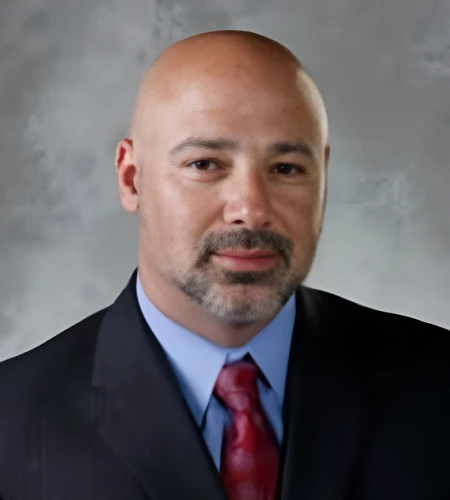The trust you place in a rideshare service when you get into a vehicle is absolute. When that trust is violated by a sexual assault, the breach is profound. You sought a safe ride home, perhaps from a gathering with friends in SoHo or after a late night of work in Midtown Manhattan, and were instead met with violence.
Seeking justice requires a New York rideshare sexual assault lawyer who is unafraid to confront powerful corporations like Uber and Lyft and hold them accountable for the harm you endured.
Table of Contents
- Holding Rideshare Companies Accountable for Assault
- Vetting and Monitoring Failures by a New York Rideshare Company
- The Legal Path for Survivors in New York
- Types of Compensation
- Preserving Evidence After a Rideshare Assault
- Why Choose Horowitz Law as Your New York Rideshare Sexual Assault Lawyer
- Questions and Answers for Survivors
- Take the First Step Toward Justice
Holding Rideshare Companies Accountable for Assault

Rideshare giants like Uber and Lyft are not merely technology platforms; they are transportation companies that have a direct responsibility for passenger safety. When they fail in this duty, they may be subject to corporate liability.
Liability is a legal term for being responsible for something. In this context, it means the company can be held financially responsible for the assault because its negligence created an unsafe environment.
These companies build their empires on the promise of a safe, convenient ride. When their drivers commit sexual assault, it exposes a failure within the company's own safety protocols — a situation that often leaves survivors turning to a New York sexual abuse lawyer for justice.
These failures are not abstract. They manifest in real-world security gaps that place passengers across all five boroughs, from the Bronx to Staten Island, in danger. A corporation's legal duty extends beyond just connecting a rider and a driver; it includes the active responsibility of trying to prevent foreseeable harm.
Vetting and Monitoring Failures by a New York Rideshare Company

A primary argument in a civil lawsuit against a rideshare company is that the corporation was negligent. Negligence, in a legal sense, is the failure to use reasonable care, resulting in damage or injury to another.
- Inadequate background checks: A company may use a superficial background check that misses a driver’s history of violent behavior, previous criminal charges, or other red flags that should have disqualified them from driving.
- Ignoring passenger complaints: Rideshare companies receive countless complaints about drivers. When they ignore reports of inappropriate comments, aggressive behavior, or previous assault allegations against a specific driver, they knowingly keep a dangerous individual on the road.
- Lack of proper driver monitoring: A company may have no effective system in place to monitor drivers for erratic behavior, such as deviating significantly from a planned route without reason or being inactive for long periods during a trip.
A corporation that prioritizes rapid growth and driver availability over rigorous passenger safety protocols creates the very conditions where assaults occur.
The Legal Path for Survivors in New York

After experiencing a sexual assault, the legal system offers two distinct paths: criminal and civil. The criminal justice system, handled by the District Attorney’s office, focuses on punishing the perpetrator through jail time or other penalties.
The civil justice system, which is where a personal injury lawyer works, allows you to file a lawsuit to seek financial compensation for the harm and losses you have suffered. You have the right to pursue a civil case against the driver and the rideshare company regardless of whether a criminal case is filed or what its outcome is.
The statute of limitations is a critical legal deadline. It is the maximum amount of time you have to file a lawsuit after an incident. In New York, these timeframes vary, and laws like the Adult Survivors Act sometimes create new opportunities for survivors to file claims that would otherwise be barred.
It is a detail that requires immediate attention from a legal professional.
Types of Compensation

In a civil lawsuit, the compensation you seek is referred to as damages. Damages are the monetary award paid to a person who has been harmed by the wrongful actions of another.
This compensation is intended to cover both the tangible, economic costs of the assault and the intangible, human cost of the trauma. The goal is to provide financial resources that support your recovery and acknowledge the full scope of your suffering.
- Economic damages: This is compensation for direct financial losses. It includes the cost of medical treatment, therapy and counseling sessions, lost wages from time away from work, and any future loss of earning capacity resulting from the trauma.
- Non-economic damages: This is compensation for the profound, non-financial impact of the assault. It covers physical pain, emotional distress, mental anguish, post-traumatic stress disorder (PTSD), and the loss of enjoyment of life.
- Punitive damages: In some cases, a court may award punitive damages. These are not meant to compensate you for a loss but are designed to punish the defendant, in this case the rideshare company, for extreme recklessness or indifference to passenger safety and to deter similar conduct in the future.
While no amount of money can erase the harm you experienced, a civil award provides the resources for recovery and sends a powerful message that a company's disregard for safety has a significant cost.
Preserving Evidence After a Rideshare Assault

Once you are home and away from immediate danger, the actions you take can help build a strong foundation for a future legal claim. Evidence is the collection of facts, objects, or information that proves a belief or proposition.
In a rideshare assault case, evidence establishes the connection between your ride, the driver, the company, and the assault itself. The digital nature of rideshare services creates a unique data trail that is instrumental in proving your case.
This evidence forms a timeline and a factual record that is difficult for a large corporation to dispute. It grounds your experience in concrete data, whether the assault occurred on a short trip across the Queensboro Bridge or during a longer journey to an outer borough.
Documenting your experience for a civil claim
Your memory of the event is powerful testimony, but it is strengthened by tangible evidence that you can begin to gather and preserve on your own. This documentation creates an undeniable record of the event and the immediate aftermath, which your lawyer will use to build your case.
- Preserve ride information: Take screenshots of the trip details within the Uber or Lyft app. This includes the driver’s name, photo, license plate number, vehicle model, the exact route taken, the date, and the time. Do not delete the app or your account.
- Save all communications: Keep any and all communications with the rideshare company. This includes emails or in-app messages you sent to report the incident and any automated or direct responses you received from their customer support.
- Record your recollection: Write down everything you remember about the assault as soon as you are able. Include details about what the driver said, their actions, the sequence of events, and anything that seemed out of place. This personal account is a vital piece of evidence.
Each piece of data you save is a building block in the legal structure necessary to hold a multi-billion dollar corporation accountable for its choices.
Why Choose Horowitz Law as Your New York Rideshare Sexual Assault Lawyer

Horowitz Law is a law firm with a singular focus: fighting for survivors of sexual abuse. We do not handle car accidents or other types of personal injury. Our entire practice is dedicated to confronting abusers and the powerful institutions that protect them or enable their actions, including rideshare corporations.
We represent survivors of sexual assault in civil lawsuits to help them achieve justice, hold all responsible parties accountable, and obtain the financial compensation that provides the resources for recovery.
Our firm was founded on the principle that every survivor deserves a powerful advocate to fight on their behalf. We bring legal action against some of the most powerful organizations in the world.
We take on rideshare giants like Uber and Lyft, challenging their inadequate safety measures and forcing them to answer for the harm their drivers cause.
Our Commitment to Survivors
Our approach is built on providing strong, unwavering legal representation. We handle every aspect of the legal process so you can concentrate on your own well-being.
This commitment is reflected in every action we take on your behalf.
- Focused advocacy: We exclusively handle sexual abuse cases. This means all of our resources, knowledge, and experience are dedicated to this one area of law, allowing for a deep command of the legal strategies required to succeed.
- Trauma-informed representation: We conduct all interactions with the sensitivity and respect your experience demands. We ensure you are informed and in control throughout the legal process, without ever being re-traumatized by it.
- No-cost representation unless we win: We operate on a contingency fee basis. This means you pay no legal fees upfront. We are paid only if and when we secure a financial settlement or verdict for you.
Our firm's sole purpose is to stand with survivors, using the full force of the law to demand accountability and achieve a measure of justice for what you have endured.
Questions and Answers for Survivors
Filing a lawsuit raises many questions. Below are answers to some common concerns that survivors of rideshare sexual assault have when considering legal action.
What if I don't remember all the details of the assault?
It is common for trauma to affect memory. You are not expected to remember every single detail perfectly.
- Your testimony is only one part of the case.
- Evidence like app data, GPS records, and communication logs helps fill in the gaps.
- Your lawyer's investigation will work to corroborate your account and build a complete picture of what happened.
A strong case is built from many different sources of evidence, not solely from your memory.
Will I have to face my attacker in court?
The majority of civil sexual assault cases are resolved through a settlement before ever reaching a trial. A settlement is a formal agreement to end a lawsuit, usually involving a financial payment, without a judge or jury making a final decision.
- You may need to provide testimony in a deposition. A deposition is an out-of-court session where you answer questions under oath, with only the lawyers, a court reporter, and sometimes the defendant present.
- Your attorney prepares you for every step of this process and protects you during it.
- The goal is to resolve the case on terms favorable to you, often without the need for a public trial.
The civil process contains many safeguards to protect you, and a trial is the final option, not the first.
How much does it cost to hire a lawyer for this type of case?
Reputable sexual assault attorneys work on a contingency fee basis. This fee structure was created to give everyone access to justice, regardless of their financial situation.
- You do not pay any upfront fees to hire the lawyer or to begin your case.
- The law firm advances all costs associated with building your case, such as investigation fees, expert witness costs, and court filing fees.
- The firm is only paid a fee if they win your case, either through a settlement or a court verdict. The fee is a pre-agreed percentage of the total amount recovered.
This arrangement means the law firm is invested in the success of your case, and you take on no financial risk.
My assault happened a while ago. Is it too late to take action in New York?
Statutes of limitations, which are laws that set deadlines for filing lawsuits, are a factor in every case. However, New York law has specific provisions for survivors of sexual assault.
- The Adult Survivors Act has, at times, opened a one-year "lookback window" for survivors to file civil lawsuits for assaults that occurred when they were over 18, no matter how long ago it happened.
- Deadlines for claims against public and private institutions differ.
- An immediate consultation with a lawyer is the only way to determine the specific deadlines that apply to your situation.
The time to act is now, as these legal windows can close, and your right to file a claim may be lost.
Take the First Step Toward Justice

You have the right to hold the rideshare company that failed to protect you accountable for its actions. Taking legal action secures the resources you need for your recovery and helps force these corporations to change their practices to protect others.
Contact the attorneys at Horowitz Law for a free, confidential consultation to discuss your case. We are here to listen and ready to fight for you. Call us today at (954) 641-2100.